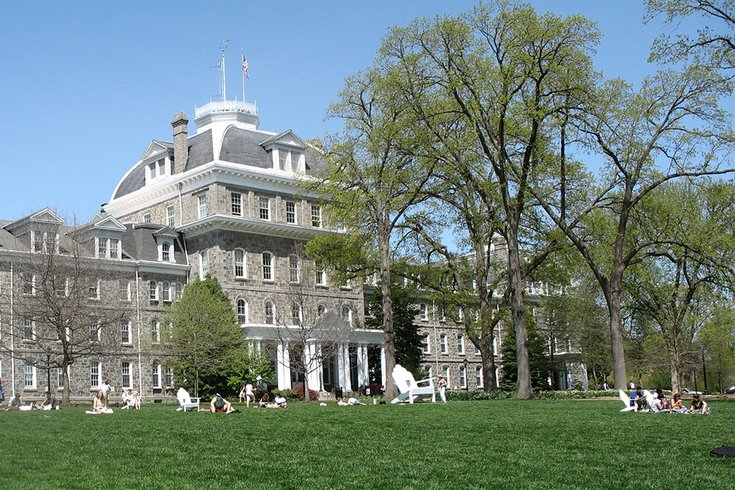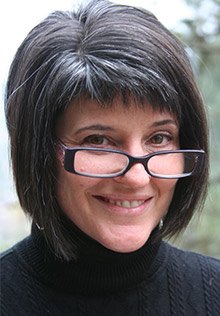
January 12, 2018
 Ugen64/via Wikimedia
Ugen64/via Wikimedia
Parrish Hall at Swarthmore College, named in honor of the first president, contains the admissions, housing, and financial aid offices, along with student housing on the upper floors.
On the eve of her graduation from Swarthmore College, a then-undergraduate student majoring in English says she spent the night with one of her professor's fingers up her vagina. Because of the alleged assault, she wrote that she has to remember someone's "invasive" finger instead of a "landmark life achievement."
Another professor raped her on a separate occasion, she says. The assaults led to "depression and shame" following her time at the small liberal arts college in Delaware County, she wrote.
While unclear when the alleged incident took place, or if it was ever reported to university officials, the story is one of more than 2,100 reported in a crowdsourced survey called "#MeTooPhD: The Scourge of Sexual Harassment in the Academy."
Started on Nov. 30 by Karen Kelsky, a former anthropology professor who runs a job search company for academics, it details instances ranging from gender harassment to groping to stalking to rape in institutions of higher learning in the United States, Europe and elsewhere. She invited victims of harassment to add their own stories to the crowd-sourced survey. The stories, which continue to come in, are available in the public Google spreadsheet here.
Kelsky recently told The Wall Street Journal that the point of the survey was to highlight the significance of the problem. The survey entries do not name names, and many, like the Swarthmore entry, do not include specific dates.
She also clarified that the spreadsheet is not meant to serve as an official, legal record of incidents of sexual harassment or assault. In fact, the veracity of many of the claims are difficult, if not impossible, to confirm.
Although the entries are anonymous, Kelsky told The Journal the overwhelming number of responses proves that when it comes to the knowledge among college administrators that sexual assaults are occurring, "plausible deniability has been eviscerated.”
 Source/theprofessorisin.com
Source/theprofessorisin.comKaren Kelsky, Ph.D. said she hopes the survey “makes academic men profoundly uncomfortable.”
While some entries are long, detailed accounts, others are less thorough but equally disturbing. Almost all carry a common theme: Male professors, staff or peers wielding their power to belittle or take advantage of women.
Nearly two dozen entries are from prominent schools in across the Philadelphia region, including alleged incidents at the University of Pennsylvania, Temple University, Rutgers University and Penn State.
There is a former University of Pennsylvania graduate student who writes that a senior male colleague, every year, seemed to have "a habit of identifying the newest, prettiest women and he follows them around flirting/insulting them." In his "predatory mode," he would put his arms on victims' waists and shoulders, she writes, and when they'd try to rebuke him, he would "treat it like a game."
A former teaching assistant and Ph.D. student at Rutgers University claims she was subject to routine harassment from advisers, professors and students, with disparaging comments and even degrading drawings made about her appearance.
In the one entry detailing an alleged incident at Temple University, which dates back several decades, a woman wrote that while interviewing for a tenure-track position, a senior employee took her out to lunch and put his hand up her skirt.
Schools that responded to The Journal's request for comment noted that while they take such allegations seriously, it's difficult to address specific entries in the spreadsheet without more identifying information.
In a statement to PhillyVoice, Rutgers said the university is "concerned whenever allegations of this nature are made" and encouraged victims to come forward.
"The university has policies and processes in place to address allegations by all individuals who have been subjected to sexual assault, harassment, and violence," the statement said. "Those processes are confidential and thorough and are managed by trained professionals in human resources or student affairs"
Penn State released a similar statement, urging victims to come forward, stressing the resources it provides them and noting its policy of maintaining an "environment free of harassment and discrimination against any person."
The University of Pennsylvania declined to comment through a spokesperson.None of the other schools mentioned in this article immediately responded to PhillyVoice's requests for comment.
Sexual assault has become a central issue on college campuses, with schools' methods for reporting and disciplining attackers coming under intense scrutiny, especially with the U.S. Department of Education rescinding Title IX guidelines meant to support victims of assault. But the #MeTooPhD spreadsheet sheds a different light on the problem — a timely light at that, given the recent flood of allegations against powerful men in media, politics, business and other industries.
The entries paint a picture of dual consequences for victims of harassment and assault, particularly in hierarchical relationships: The physical or verbal abuse leads to victims being marginalized in their field, and in many cases causes them not to pursue a professional path they say they otherwise would have pursued.
One respondent writes while working as an undergraduate employee in the media department for an unspecified Catholic university in Philadelphia, she was warned by colleagues not to be alone in the room with a professor whose class she was taking the following semester.
In the lab one day, she wrote, he came up behind her, pressing himself up against her back while straightening out the equipment in front of her. She noticed him do the same thing to other women, she wrote.
"This incident made me not want to go into the sub-field that the professor taught," the entry reads. "This limited my career options."